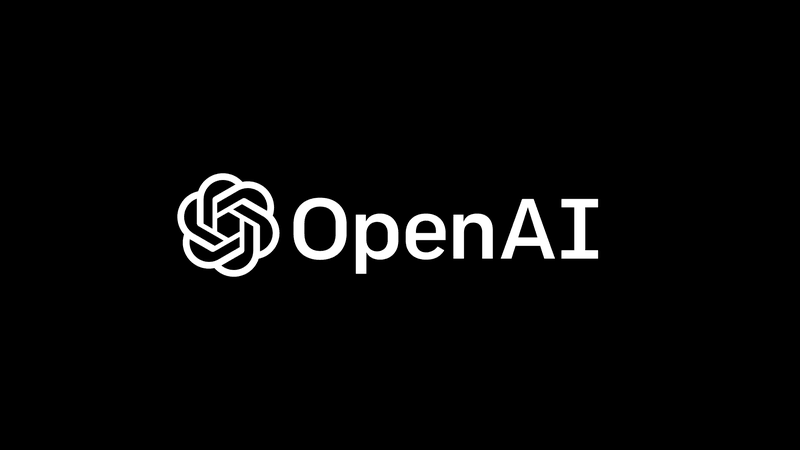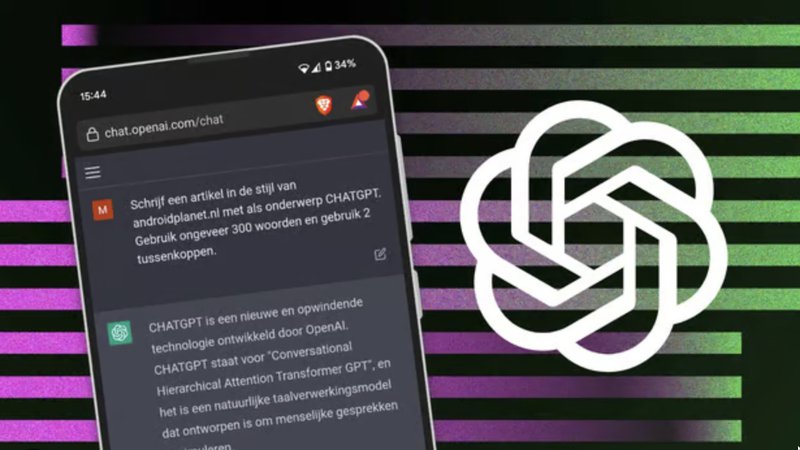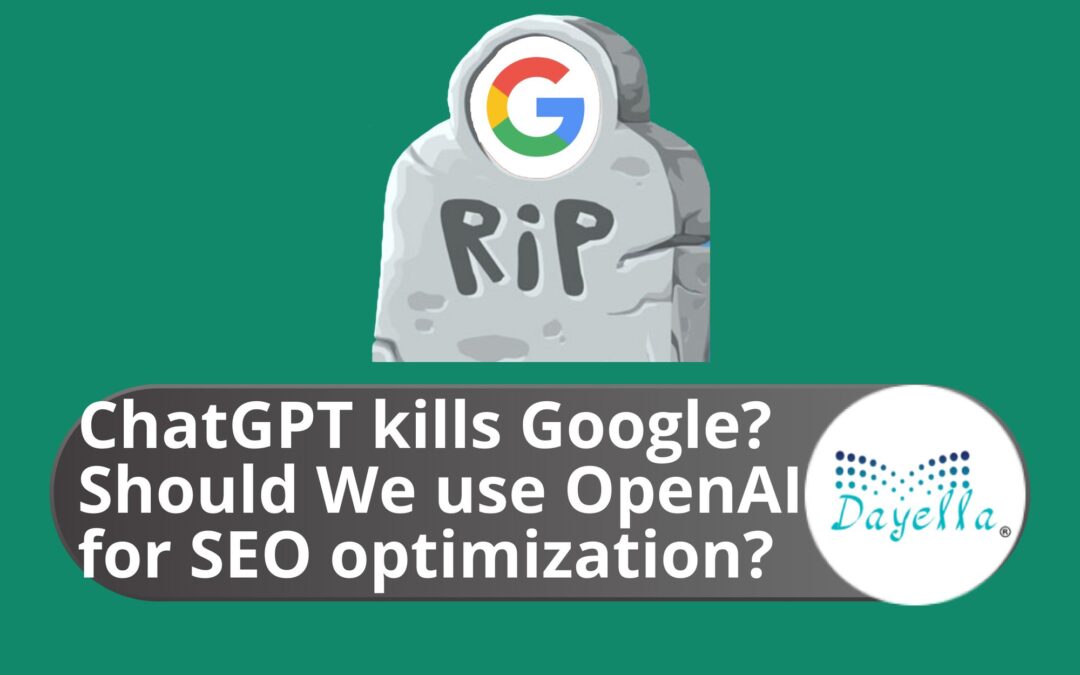ChatGPT crosses 1 million users in 5 days after its launch! The use of AI to generate content is currently the most talked about subject among marketers, bloggers, and SEOs. Most of us are fascinated by ChatGPT's present uses and its future with so many tools being produced daily.

As a Free tool, ChatGPT is impressing everyone, especially non-marketers, who were disappointed with previous AI authoring tools. Our clients have come out to me to discuss ChatGPT and the future of blogging and marketing with AI technologies like those.
How will AI-generated content affect Google?
For sure, Google will loss of money from media and ads if Google search engine no longer deliver the most effective way to provide the correct answer. Many marketers inquire about the effect of AI-generated content on search engine optimization. The following is a selection of the most often-asked questions by this particular group:
- Will Google rank AI-Generated blogs?
- Should we be creating material utilizing AI writing tools instead of traditional methods?
- How should we make use of the tools provided by AI Writing to produce content that will rank well in search engines?
And many inquiries on a similar line…To tell you the truth, there is no simple response, particularly when we consider the ramifications of utilizing AI-writing tools for search engine optimization (SEO).
In my experience, Google does not dislike content that is generated artificially as long as it is helpful to users and provides quality. There is no question that material produced by AI will remain popular in the foreseeable future. In this and subsequent articles, I will demonstrate how to get the most out of the various AI tools available to expand your company's operations. That too without negatively affecting your SEO, remaining authentic to your ethical beliefs, and ensuring the happiness and satisfaction of your clients, customers, and readers.
What is AI-Generated content?
A number of AI (Artificial Intelligence) content production technologies use computer programs and algorithms to generate written or spoken language, as opposed to humans like you and me.
AI-generated content is created via natural language processing (NLP) and machine learning techniques, which enable computers to comprehend and imitate human language. There are numerous potential applications for AI-generated content, including:
- Material creation for websites and social media: AI-generated text can assist enterprises and organizations in producing high-volume, high-quality content more effectively.
- Automated customer service: AI-generated speech and text can be utilized to react rapidly and accurately to consumer questions.
- AI-generated text may generate news stories, summaries, and essays on a variety of topics.
Here are some common instances of AI-generated content:
- Blog posts
- Creating the post's title
- Developing a sketch of the material
- Social media posts
- Email newsletter Description of Products
- Copywriting for your advertising needs
- Landing pages
It is essential to emphasize, however, that AI-generated material is not ideal and still has several limits, which I will describe in the following section.
I believe we are currently experiencing one of the most momentous technological shifts in the history of content creation. Time will tell how AI tools will transform the world of content creation. For now, let's examine the relationship between AI-generated content and SEO.
What are the cons of using content made by AI for SEO?
At the moment, AI writing tools have a few problems, some of which seem impossible to fix.
- Quality and fact-checking – The quality of the content and how well it fits the user's search seem to be the number one problem when using AI tools to make content. The truth of the content is another important issue. If you only use AI research tools, you might make mistakes that are hard to find and could hurt the reputation of your brand.
- Plagiarism: Content made by AI may use phrases or sentences from other sources without giving credit. It's not only wrong, but search engines could also punish the site for it. You must run your article through a tool that checks for plagiarism or make sure that the AI writing tool has a way to add citations.
- Lack of human touch (may sound robotic): Articles written by AI writing tools often sound too robotic and lack human emotions and touch. This could be terrible for your brand in some niches, even if it won't always be the case.
AI written content and Google SEO
If you want people to visit your online business, you should pay close attention to this section. In response, John Muller, a Google spokesperson, said the following at last year's Google Search Central Webmaster Talk:
The content that is made by AI is still considered to be automatically generated content. If you use machine learning tools to make content, it's the same as just changing the order of the words or using translation tricks or synonyms (Hint: Article spinner tools).
The content made by these AI writing tools might be better than that made by old-fashioned tools, but it is still mostly made by computers. And that meant that it was still against the rules set by the webmaster.
When John Muller was asked if Google can tell the difference between content made by AI and content made by people, that was an interesting question.
He said he couldn't make that claim. But if the web spam team sees something that was made automatically, they will do something about it.
How does Google respond to the possible business threat posed by ChatGPT from OpenAI? As of now, it appears not at all. There is no need to hurry.
Some individuals believe that ChatGPT could supplant Google as the next generation of Internet search. On the surface, this notion is reasonable: ultimately, both systems deliver responses to questions you write into a text box. ChatGPT is much more convenient because you receive the answer without having to browse through advertisements and other pages beforehand.
Nonetheless, there are other arguments against ChatGPT posing an immediate danger to Google Search. Among these are the restricted actuality and dependability, as well as the lack of source openness. Even OpenAI co-founder Sam Altman recommends against using ChatGPT information for significant subjects.
Google already knew how to solve the same questions before ChatGPT was even made.
Not to mention that Google has been working on AI technology for years and is already using it for search. Google is probably the only company that has looked into the pros and cons of large language models in the context of Internet search as deeply as it has. The company showed dialog-based search demos with LaMDA as early as May 2021. These demos were similar to how ChatGPT works.

Alphabet CEO Sundar Pichai and Google's AI head Jeff Dean recently talked to Google employees about how popular ChatGPT is and what it might mean for their own company in an internal meeting.
They said that Google's AI models like PaLM (versus GPT-3) and LaMDA (versus ChatGPT) are just as good as OpenAI's. This is also clear from the papers written by scientists about the systems.
So far, though, Google has always decided not to release the models because they are not reliable enough and have social biases. Pichai and Dean both agree that Google has to be more cautious than a new company like OpenAI because it could hurt its reputation.
There are, of course, other good reasons for Google not to rush into new ways to search the Internet. Google search is still growing, though not as fast as it used to, and making a lot of money. This is a business model that Google would have to destroy, but it probably won't do so until it finds a way to make money off of chatbots that is just as profitable or until other market players force it to do so.
Also, Google would have to deal with new copyright issues if it used up-to-date information in a chatbot and didn't say where it got that information.
The Drawback of using ChatGPT to generate content and publish on the Internet: a huge problem for copyright.
A chatbot demo by Google's sister company Deepmind showed that a combined Internet search might be able to get around the problems with ChatGPT when it comes to search.
But having access to the Internet would bring new problems. Behind ChatGPT, OpenAI would need a powerful search engine. Business partner Microsoft could help with Bing, but then OpenAI would probably be in a copyright dispute.
A no-click search would be a ChatGPT or even a GoogleGPT that pulls current information from the Internet in real-time and puts it together into new answers in its interface. It's unlikely that publishers would voluntarily and for free make their content available for this purpose.
In some countries, like Germany and Spain, Google has been fighting with publishers for years over short text quotes or headlines that link to the publishers' websites in Google search results. There are other ways to get the news, but it would cost more to check them out.
So, what will Google do next?
Google needs to come up with a User Experience that combines the idea of a narrator (like in ChatGPT) with new ways to add sponsored media. This is a big ask. It can, of course, charge an API fee for its search engine, which will be used by the ChatGPT-like interface. However, Google will no longer have the power to show sponsored content. This will hurt business.
Google has billions of well-designed suggestions (called "Search Queries") and a program called "Reinforced Learning through Human Factors" (Click streams). These are two of the most important ingredients for a good storyteller.
ChatGPT is useless if it doesn't have a good question to get a good story. This is something that is already known.
In essence, narrator AIs are competing directly with the "Search Interface" for media dollars. It will be interesting to see how Google creates a new interface by combining the power of its "Fact Assimilation Engine," which is similar to the Search Engine, with that of its "NarratorAI," which is called PaLM and is technically better than GPT3.5.
Some of my thoughts about the content made by AI
I wouldn't be surprised if most bloggers and people who make content started to use AI writing tools to help them make content. For sure, a lot of tools that use AI to find content will be coming out in the coming months.
Content editors' jobs would change, and they should know how to use AI writing tools. I will soon give you a list of these kinds of tools.
- As a freelance writer, you should think of AI writing tools as a helper, not as a threat. People were against the idea of Grammarly at first, but now everyone who writes online uses it.
- As a blogger or content creator, you can use AI writing tools to come up with ideas, concepts, outlines, and other tasks you'd like to outsource. But never publish the results without editing them and adding your own special touch.
I also think you should put more effort into making video content because it makes you seem more real, builds trust, and makes you seem more like a person. Over time, it would be hard to figure out who wrote that text, and it might lose its value. When the topic requires greater trust and humanity, films and podcasts may replace text. I don't think AI will replace video content creation for a long time, which is a great way to make a difference in the world of bloggers and content creators.
My observation:
Google is not against content that is made by AI as long as it is reviewed and makes the user experience better. The Google web spam team will definitely punish you if you make low-quality content with AI tools that haven't been fact-checked or edited by a person.
Now it is your turn to let us know –
- Created content with AI? Are they SEO-rankable?
- AI-generated SEO content: benefits and cons?
- How might AI writing tools be used to rate content?
- What do you think AI writing tools will mean for SEO?


